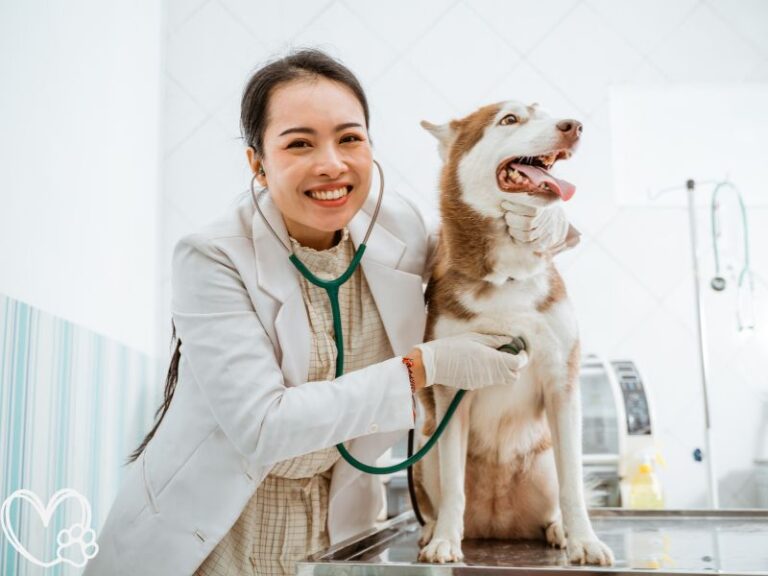The sleeping habits of pets offer valuable insights into their overall health and well-being. A pet’s sleeping patterns can serve as a window into its physical and emotional state, often reflecting subtle or significant health issues. Understanding these habits allows pet owners to detect potential problems early, ensuring timely intervention and care.
Different pets exhibit various sleeping behaviors based on their species, breed, age, and individual characteristics. Dogs, for instance, might have distinct sleeping positions and durations compared to cats. While dogs typically sleep for 12 to 14 hours a day, cats may sleep up to 16 hours or more, with sporadic periods of intense activity. These patterns can indicate normal or abnormal conditions depending on the pet’s health status.
Observing your pet’s sleeping habits doesn’t only help in recognizing health issues but also plays a part in enhancing the pet-owner relationship. When pets experience discomfort, pain, or stress, it often manifests in altered sleeping patterns, such as excessive sleeping or difficulty in sleeping. Such changes might signal underlying problems like arthritis, anxiety, or chronic illnesses that require veterinary attention.
This seemingly simple aspect of a pet’s daily life thus holds significant importance. As an owner, being attentive to shifts in your pet’s sleeping habits empowers you to contribute to their overall health. Noting these patterns and understanding their implications equips you with knowledge to support your pet’s well-being proactively.
In the following sections, we will delve deeper into how specific sleeping behaviors can act as indicators of various health conditions. This insight will help pet owners become more attuned to the needs of their pets, ensuring they lead healthy, comfortable lives.
Normal Sleeping Patterns for Various Pets
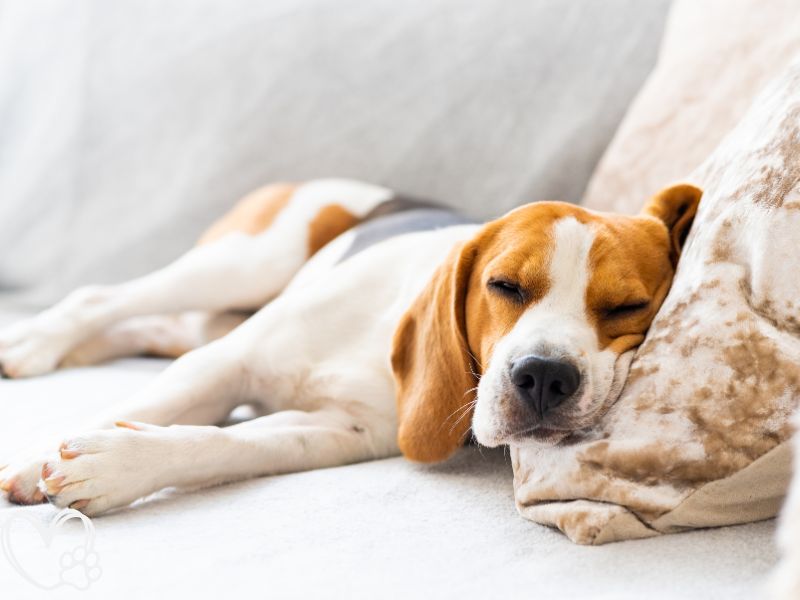
Understanding your pet’s sleeping habits can offer valuable insights into their overall health. Different types of pets exhibit unique sleeping patterns that can serve as benchmarks for their well-being. Cats, for instance, are known for their extensive sleep requirements, often clocking in between 12 to 16 hours each day. Their sleep is segmented into both light and deep sleep phases, with some cats favoring multiple short naps throughout the day. Typically, healthy cats are nocturnal and tend to be most active during the dawn and dusk hours.
Dogs, however, generally need around 12 to 14 hours of sleep per day, but it is not uncommon for puppies and older dogs to require up to 18 hours. Dogs usually sleep at night and take multiple naps during the day. Their sleep cycles are shorter than those of humans, which means they wake more frequently. Recumbent positions, such as lying on their sides with legs extended, are broadly indicative of a dog feeling secure and relaxed.
On the other hand, small mammals such as rabbits and guinea pigs exhibit different sleeping habits. Rabbits, being crepuscular, are most active during twilight periods and usually sleep around 8 to 10 hours per day. They tend to sleep with their eyes open or half-closed, a trait they share with other prey animals, indicating a hyper-awareness of potential threats even in their resting state. Similarly, guinea pigs are polyphasic sleepers and rarely sleep for extended periods. They accumulate around 4 to 6 hours of sleep in short bursts throughout the day and night.
Age and breed can significantly influence a pet’s sleeping patterns. For example, young animals and senior pets generally require more sleep compared to healthy adults. Certain breeds also have distinct characteristics; for instance, larger dog breeds like Great Danes tend to sleep more than smaller breeds. Recognizing and accommodating these patterns can prove crucial for monitoring your pet’s health and well-being.
Signs of Healthy Sleep in Pets
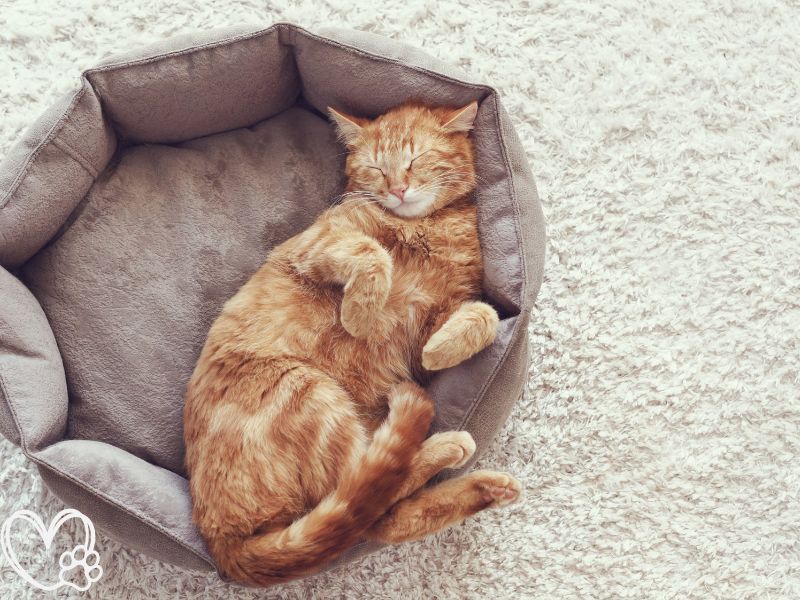
Recognizing the signs of healthy sleep in your pet is crucial for ensuring their overall well-being. One of the primary indicators is the soundness of their sleep. Pets experiencing healthy sleep exhibit deep and restorative rest. This is often characterized by a lack of restless behaviors such as frequent shifting positions, waking up frequently, or appearing anxious during sleep. A pet that sleeps soundly typically wakes up feeling refreshed and energetic, which is a positive sign of their overall health.
Regularity in sleep patterns is another significant marker of healthy sleep. Pets thrive on routine, and consistent sleep schedules contribute significantly to their health. When pets have predictable sleep times and a stable wake-up routine, it not only aids in their physical health but also supports their mental well-being. An irregular sleep pattern might be an indication of underlying health issues or external stressors affecting your pet.
Uninterrupted REM (Rapid Eye Movement) sleep is also essential for a pet’s health. REM sleep is a critical phase of the sleep cycle where the brain is highly active, and the body undergoes various restorative processes. During this phase, pets might exhibit movements such as twitching, which are normal. However, frequent interruptions to REM sleep can impede these restorative processes, leading to fatigue, mood disturbances, and a decline in overall health and energy levels.
Healthy sleep patterns are vital for maintaining your pet’s health, affecting their mood and energy levels significantly. Observing these sleep behaviors can help pet owners identify what is considered normal and when there might be potential health concerns. Ensuring that your pet is enjoying an uninterrupted and consistent sleep routine will contribute greatly to their long-term health and happiness.
Indicators of Potential Health Issues
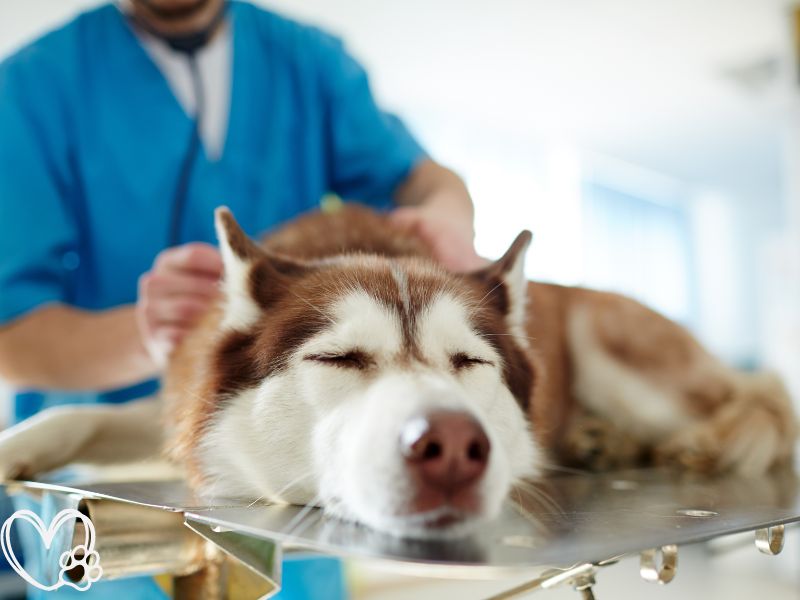
It’s important to observe your pet’s sleeping habits as they can be an indicator of their overall health. Although individual pets may have unique sleep patterns, significant changes or irregularities often suggest underlying health issues. For instance, excessive sleeping can be concerning if your pet suddenly requires much more rest than usual. This could indicate conditions such as hypothyroidism, diabetes, or even depression. If you notice an abrupt increase in your pet’s sleeping, consulting a veterinarian is advisable.
Difficulty falling asleep can also signal health concerns. Dogs and cats that used to fall asleep easily but now struggle might be dealing with pain or discomfort. Conditions like arthritis are common culprits, particularly in older pets. Similarly, restlessness during sleep, characterized by frequent shifting, twitching, or waking up, might be due to discomfort or neurological disorders.
Snoring or loud breathing is another noteworthy indicator. While some breeds are more prone to these symptoms due to their anatomy, a sudden onset could point to respiratory issues, such as sleep apnea, or infections like bronchitis. In some cases, obesity can exacerbate breathing difficulties during sleep, which is another reason to keep an eye on your pet’s weight and overall fitness.
Unaddressed, such changes in sleeping habits could lead to compounded health problems. Hence, noticing any of these behavioral changes should prompt a visit to the veterinarian. Early diagnosis can significantly improve the management of potential health issues, ensuring better quality of life for your furry friend. Regular monitoring of your pet’s sleeping patterns and overall behavior is crucial for maintaining their health and well-being. Basic understanding and awareness of these signals will help you take timely action and seek appropriate medical advice, helping to keep your pet healthy and happy.
Behavioral and Environmental Influences
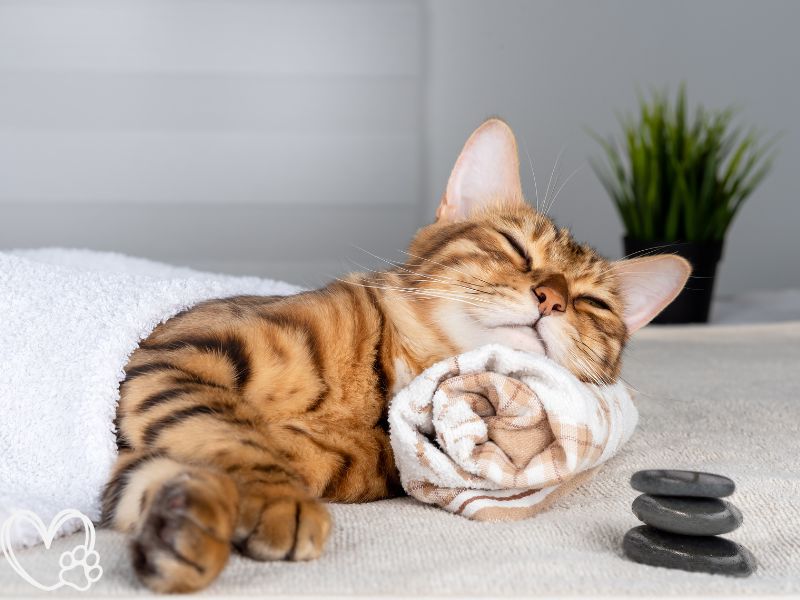
Understanding the numerous factors that influence your pet’s sleeping habits is vital for maintaining their overall health. The environment in which a pet resides, the daily activities they engage in, and even the diet they consume, collectively play a significant role in shaping their sleeping patterns. For instance, the quality of your pet’s bed and the room temperature can substantially affect their comfort and their ability to enjoy restful sleep. Providing a clean, cozy, and appropriately-sized bed is essential to encourage optimal rest. Additionally, regulating room temperature to suit your pet’s preference can lead to more consistent and uninterrupted sleep.
Diet also has a noticeable impact on a pet’s sleeping habits. Nutrient-rich, balanced meals tailored to your pet’s specific needs can promote better sleep cycles, whereas poor nutrition can result in discomfort and restless nights. It’s crucial to establish a regular feeding schedule to foster a sense of routine, which can positively influence a pet’s internal clock and thus their sleep. Furthermore, adequate hydration should not be overlooked, as it is integral to a pet’s overall well-being and sleep quality.
Exercise is another pivotal factor. Pets that engage in regular physical activities tend to sleep better, as exercise promotes a healthy metabolic rate and reduces anxiety or pent-up energy. A routine involving regular walks, playtime, and mental stimulation can mitigate stress levels, which, if left unchecked, could disrupt a pet’s ability to fall and stay asleep. Managing stress through a stable routine and gradual exposures to new environments or stimuli can also help in maintaining normal sleeping patterns.
Ultimately, to foster a constructive sleeping environment for your pet, consider their unique needs and preferences. Optimize their sleeping conditions by providing a comfortable bed, maintaining a suitable room temperature, ensuring a nutritious diet, and incorporating regular exercise and mental activities into their daily routine. These practices can lead to healthier sleeping habits, thereby enhancing your pet’s overall health and well-being.
The Impact of Sleep on Pet Behavior

The quality and quantity of a pet’s sleep can significantly influence its behavior and temperament. Just as humans exhibit irritability or a lack of focus after a poor night’s sleep, pets are similarly affected by their sleeping patterns. A pet that does not receive adequate rest can display a range of negative behaviors, from increased irritability to overt aggression. These changes are often a direct response to the physiological stress caused by lack of sleep.
Beyond irritability, pets struggling with insufficient sleep may show heightened anxiety levels. This can present itself in various forms, such as social withdrawal, excessive barking or meowing, or destructive behaviors like chewing furniture or scratching walls. Anxiety related to poor sleep can make pets less willing to interact with their owners and other animals. This behavioral shift not only affects the pet’s well-being but also impacts household harmony.
Lethargy is another common consequence of disrupted sleep patterns in pets. Pets that are chronically sleep-deprived may appear unusually fatigued and disinterested in activities they once enjoyed. This reduction in energy and engagement can be mistaken for general inactivity or aging, but in many cases, addressing sleep issues can reinvigorate a pet’s enthusiasm and playfulness.
Improving a pet’s sleeping conditions can yield noticeable improvements in their demeanor and overall behavior. Simple adjustments, such as providing a comfortable sleeping environment or establishing a consistent sleep routine, can lead to substantial positive changes. Correcting sleep issues has been shown to diminish anxiety, reduce irritability, and enhance a pet’s ability to socialize harmoniously with humans and other animals.
In essence, maintaining good sleep hygiene is crucial for promoting optimal pet health. A well-rested pet is typically happier, more relaxed, and better equipped to engage in positive interactions, ultimately leading to a more harmonious living experience for both the pet and its owner.
Veterinary Insights and Recommendations
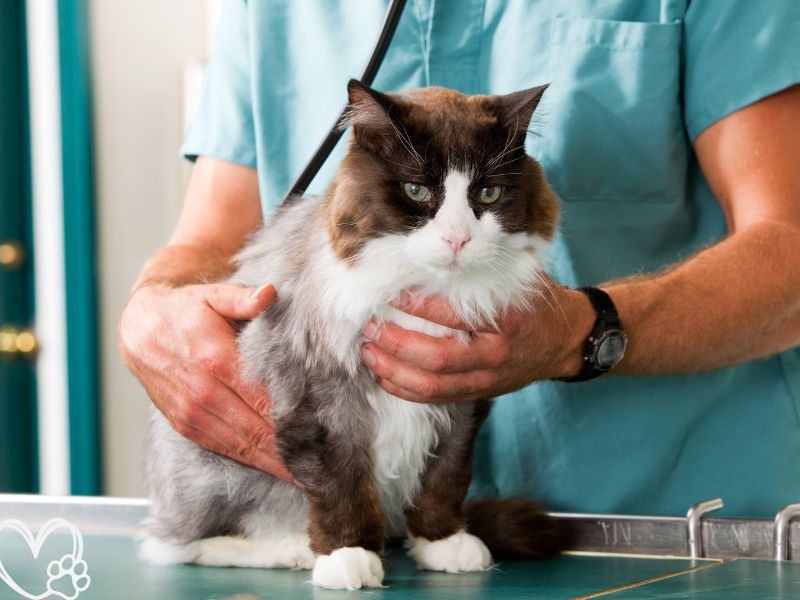
Understanding your pet’s sleeping habits can provide valuable clues about their overall health. According to veterinary professionals, consistent monitoring of your pet’s sleep patterns is crucial. Dr. Jane Stevens, a renowned veterinarian, emphasizes, “Just like humans, pets can exhibit changes in their health through alterations in their sleeping behavior. Recognizing these signs early can be pivotal in addressing potential health issues.”
Dr. Stevens suggests observing your pet’s sleep patterns on a daily basis. Certain anomalies—such as excessive sleeping, restlessness, or disruptions in sleep cycles—may indicate underlying health concerns that require professional evaluation. Pets typically require different amounts of sleep depending on their age, species, and activity level. For instance, adult dogs generally sleep 12-14 hours a day, while puppies and elderly dogs might sleep more. Conversely, cats spend about 12-16 hours sleeping, primarily during the day. Note that minor deviations in these patterns can be normal, but significant changes warrant attention.
It is recommended to document any notable changes in your pet’s sleeping habits to aid veterinarians during health check-ups. Dr. Karen Smith, a veterinarian specializing in holistic pet care, advises, “Keeping a sleep diary for your pet can be incredibly helpful. Recording the duration and quality of your pet’s sleep will assist your vet in diagnosing any issues promptly.”
Veterinarians also stress the importance of regular health check-ups. Routine visits allow for early detection of potential health issues, ensuring timely intervention and treatment. During these visits, discussing any observed changes in your pet’s sleeping habits with the vet can provide deeper insights.
Finally, ensuring your pet has a comfortable and safe sleeping environment is paramount. Factors such as a quiet sleeping area, a suitable bed, and maintaining a consistent daily routine contribute significantly to the quality of your pet’s sleep and overall health.
“`html
Conclusion and Final Thoughts
Understanding and monitoring your pet’s sleeping habits offer invaluable insights into their overall health and well-being. Sleep patterns can often be the first indicators of underlying health issues, whether they are physical ailments, psychological stress, or environmental discomfort. Familiarity with your pet’s normal rest routines provides a crucial comparative baseline to identify any concerning changes.
Throughout this blog post, we have delved into the various aspects of how sleep affects pet health. From recognizing the significance of rest in cognitive function and physical rejuvenation, to spotting abnormal sleeping behaviors that may signal medical conditions, recognizing these patterns is essential for proactive pet care. By paying close attention to how long, how comfortably, and how deeply your pet sleeps, you contribute significantly to their long-term health.
When deviations from usual sleeping habits are noticed—be it excessive sleepiness, restlessness, or disruptions—it’s vital to consult with a veterinarian. Swift action can prevent minor issues from escalating into serious health problems. Regular check-ups, alongside attentive home monitoring, forge a comprehensive approach to maintaining your pet’s health.
We encourage you, as dedicated pet owners, to be ever vigilant and proactive in this regard. Share your own observations or experiences related to your pet’s sleeping habits in the comments section below. By doing so, you not only contribute to a community of informed and caring pet owners but also help in creating a collective knowledge base that benefits everyone.
Remember, taking an active interest in your pet’s sleeping habits is more than just ensuring they get enough rest—it’s a vital part of their overall care plan and a cornerstone of their well-being.
